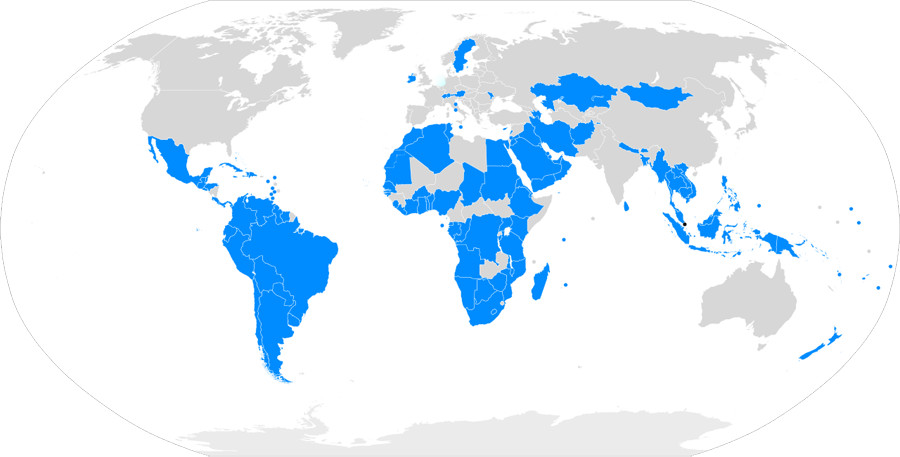CCA endorses joint interfaith statement welcoming the coming into force of UN Treaty on Prohibition of Nuclear Weapons

A world map indicating the 122 countries in support of the TPNW. Source: Wikipedia Commons
The Christian Conference of Asia (CCA) has endorsed an interfaith statement on ‘The Entry into Force of the Treaty on the Prohibition of Nuclear Weapons (TPNW)', and joined with many other renowned faith-based organisations from around the world in signing the interfaith statement.
The United Nations (UN) Treaty on the Prohibition of Nuclear Weapons (TPNW), a legally binding instrument, is a decisive step towards the total elimination of nuclear weapons. It includes a set of prohibitions and undertakings that prevent the development, testing, acquisition, possession, stockpiling, use, or threat of use of nuclear weapons.
The TPNW was adopted with the support of 122 states in 2017 and is set to come into force on 22 January 2021. To mark the historic and ground-breaking moment, several interfaith organisations released a joint statement that reaffirmed the moral, ethical, and theological imperatives and importance of the global disarmament movement.
The joint interfaith statement espouses, “As people of faith, we believe that the possession, development, and threat to use nuclear weapons is immoral…these technologies are part of structures and systems that bring about great suffering and destruction. We commit, therefore, to the ethical and strategic necessity of working together for economic and social justice, right relationship with the Earth, and accountability and restoration where there is violence and harm.”
The TPNW recognises the damage wrought on people and the environment by the use or testing of nuclear weapons; it requires nations to implement the required remedial measures to rectify all harm.
The statement concludes with the declaration: “At this historic moment, we must act decisively to strengthen the power of the TPNW upon its entry into force, and to work for peace, cooperation, and common security.”
Dr Mathews George Chunakara, the General Secretary of the CCA, stated, “The CCA has expressed deep concern about the catastrophic humanitarian consequences of any use of nuclear weapons. The rush to develop and procure such weapons anywhere in the world is incompatible with the desired goal of achieving genuine standards of a humanitarian polity. As the world grapples with the task of addressing even the most basic of human needs, the tendency to divert precious resources towards the acquisition and maintenance of nuclear weapons has grave ramifications.”
The CCA General Secretary lauded the Treaty for representing the commitment of the nations and the willingness of many heads of states to make a significant shift from the ever-escalating arms race to a period of peace, justice, and wellbeing.
“The mandate on States to uphold the Treaty is in keeping with the life-affirming proclamation that envisions security in our world and future. It endorses the right to protect the world for future generations and validates the principle of stewardship,” observed Dr Mathews George Chunakara.
For the full text of the Joint Interfaith Statement on the Entry into Force of the Treaty on the Prohibition of Nuclear Weapons (TPNW), please click here.










